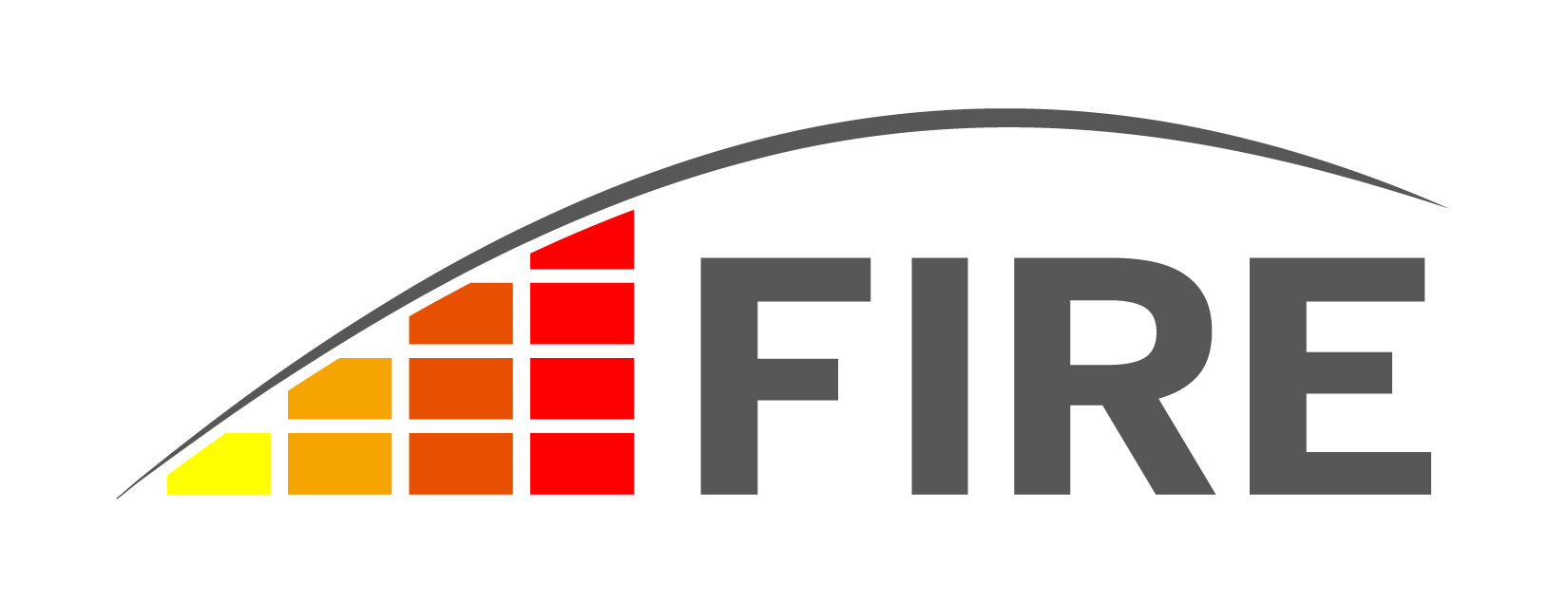Students' Theses in the FIRE Project
2019:
In his master thesis, Oliver Eicke developed a competence model for platoon leaders in the fire department. In a series of interviews, he asked experienced platoon leaders about their behavior in particularly challenging situations. The resulting model emphasizes the importance of social skills as well as the ability to act in extreme situations.
In her bachelor thesis, Hannah Thölking found out that laypersons have both the willingness and the ability to extinguish a developing fire themselves with the help of a handy extinguishing spray. Trust in one's own abilities, for example, played a role in this. Hannah concluded that practical extinguishing exercises are also useful for laypersons. This Bachelor thesis was part of the TEBRAS project.
Lena Tangelder investigated in her bachelor thesis the behavior of laymen during the development of a fire. She found out that extraverted persons react particularly fast with an attempt to extinguish a fire when confronted with it for the first time. Other personality traits showed no influence. A repeated confrontation with the fire also contributed to a faster reaction time and reduced stress. This Bachelor thesis was part of the TEBRAS project.
Dzenita Hadzihalilovic created in her master thesis a modified version of the FIRE core questionnaire, which can be used for the evaluation of the crisis management training - the FIRE-CU. Her validation study with participants of crisis staff exercises showed that the FIRE-CU covers the same dimensions as the FIRE core questionnaire.
2018:
Hannah Felske developed and validated an instrument for the evaluation of shorter seminars and one-day events based on the FIRE core questionnaire - the FIRE-ST. She was able to show that the FIRE-ST covers the dimensions lecturer behavior, structure, level of requirements, acquisition of competencies and optional transfer.
In her master thesis, Lena Niemann validated the questionnaire developed by Lisa Streppel for the evaluation of basic training. Using a large sample of firefighters, she was able to confirm the six dimensions of the questionnaire. She was also able to show that the questionnaire predicted the satisfaction and learning success of the course participants. The questionnaire can be used in a wide variety of basic training courses at the community level and district level to assess the quality of training and identify potential for improvement.
In two studies, Lisa Streppel has developed a tool for evaluating the basic training of rescue workers in local fire departments. For this purpose, she first conducted interviews with firefighters. On the basis she derived questionnaire items. A pilot study with fire departments all over Germany showed that the questionnaire can reflect six dimensions of good teaching in basic training: Structure & didactics, support & promotion, group, practice, material & facilities and acquisition of competence.
2017:
In her master thesis, Katharina Frerichs conducted a validation study for the questionnaire for the evaluation of written examinations developed by Jessica Nora Busjan. Among other things, she showed that the questionnaire precisely measures the three dimensions preparation of the exam by the course, design of the exam and the burden of the exam.
In her master thesis Mona Hagel developed and validated the two additional modules "lecturer behavior" and "incident training" in addition to the FIRE core questionnaire. This allows a flexible use of the FIRE scales, which can be adapted to the actual practical needs.
Niklas Schulte validated the FIRE core questionnaire in his master thesis. Among other things, he was able to confirm that the questionnaire can precisely capture six different dimensions of good teaching. These describe the course itself (lecturer behavior, structure, requirement level & group) and the results of the course (competence acquisition & transfer).
2016:
Jessica Nora Busjan developed two questionnaires for the evaluation of written and practical examinations in leadership courses. First, she conducted interviews and written surveys with course participants, examiners and lecturers to identify characteristics of good exams. From these she derived questionnaire items, which she first checked for relevance and clarity and then presented to a large sample of course participants. Statistical analyses based on these results provided information about the dimensionality of both questionnaires.
In her master thesis Linda Loberg examined the group and platoon leader training courses at the Institute of the Fire Brigade North Rhine-Westphalia (IdF NRW) and compared an existing training concept with a newly developed concept. Based on the results, she was able to derive suggestions for improvement. The participants of the training course especially positively evaluated a close interlocking of theoretical and practical blocks.
In her master thesis, Stephanie Babiel developed an instrument for evaluating the quality of group and platoon leader training courses. She first conducted interviews to identify the central aspects of good teaching. From this she derived questionnaire items which she tested for relevance and clarity. On the basis of a pilot study, this resulted in the precursor of the FIRE core questionnaire, which can record different dimensions of good teaching in a time-saving and precise way.
2015:
In her master thesis Stephanie C. Sievers extended a leadership process model, which describes thought and action processes for coping with operational situations. For this purpose, interviews with fire department managers were conducted. Six phases of the leadership process were identified from the analyses: "mission preparation/post-event follow-up", "coordination", "situational awareness", "determination", "arrangement" and "measure realization/implementation".


